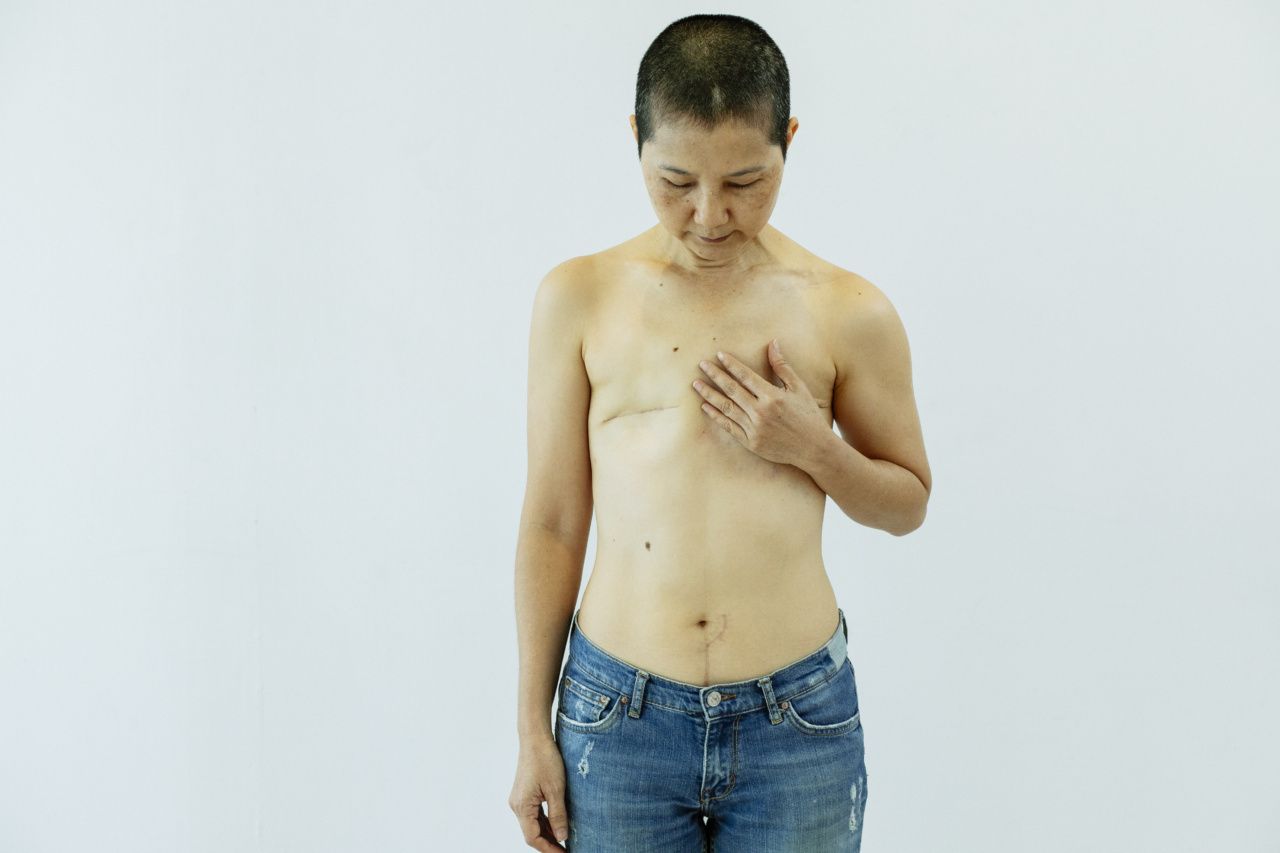Breast growth and scarring can result from a number of different factors, including pregnancy, breastfeeding, weight gain or loss, and surgery.
While some degree of growth and scarring is generally considered normal and should not cause concern, excessive growth or scarring can be painful, unsightly, and even dangerous. Fortunately, there are a number of different treatments and remedies available to help alleviate these symptoms, including natural remedies, over-the-counter medications, and surgical procedures.
Natural Remedies for Breast Growth and Scarring
For minor cases of breast growth and scarring, natural remedies can often be effective at reducing pain and inflammation and promoting healing. Some common natural remedies for breast growth and scarring include:.
1. Warm Compresses
Applying a warm compress to the affected area can help promote blood flow and reduce inflammation, which can help alleviate pain and swelling.
To make a warm compress, simply warm a damp towel or cloth in the microwave or with hot water, then apply it directly to your breasts for 10-15 minutes at a time.
2. Massage
Gentle massage can help stimulate blood flow and promote healing of breast tissue. To perform breast massage, simply use your fingertips to apply gentle pressure in circular motions around the affected area for several minutes at a time.
Be sure to use a lubricant such as lotion or oil to help reduce friction and increase comfort.
3. Vitamin E Oil
Vitamin E oil is a powerful antioxidant that can help reduce inflammation and promote healing of damaged tissues.
To use vitamin E oil for breast growth and scarring, simply apply a small amount of the oil to the affected area and massage gently for several minutes.
Over-the-Counter Treatments for Breast Growth and Scarring
If your breast growth or scarring is more severe, you may need to turn to over-the-counter treatments to alleviate pain and promote healing. Some common over-the-counter treatments for breast growth and scarring include:.
1. Topical Creams
There are a number of different topical creams available that can help reduce pain and inflammation associated with breast growth and scarring. Some popular ingredients include lidocaine, hydrocortisone, and aloe vera.
Be sure to read the labels carefully and follow the manufacturer’s instructions for best results.
2. Pain Relievers
Over-the-counter pain relievers like acetaminophen (Tylenol) or ibuprofen (Advil) can be effective at reducing pain and inflammation associated with breast growth and scarring.
Be sure to follow the manufacturer’s instructions for dosing and do not exceed the recommended amount.
3. Scar Creams
There are a number of different over-the-counter scar creams available that can help reduce the appearance of scarring and promote healing. Some popular active ingredients include silicone and vitamin E.
Surgical Treatments for Breast Growth and Scarring
If your breast growth or scarring is severe or causing significant pain or discomfort, surgical treatments may be necessary. Some common surgical procedures for breast growth and scarring include:.
1. Breast Reduction Surgery
For women with excessively large breasts, breast reduction surgery can be an effective way to reduce pain and discomfort associated with breast growth.
The procedure involves removing excess breast tissue and repositioning the nipples to create a more proportionate and comfortable breast size.
2. Breast Reconstruction Surgery
For women who have undergone mastectomy or other breast surgery, breast reconstruction surgery can help restore the appearance of the breast and improve self-esteem and confidence.
The procedure involves using tissue from other parts of the body to recreate the breast shape and volume.
3. Scar Revision Surgery
For individuals with significant scarring, scar revision surgery may be necessary to improve the appearance of the affected area.
The procedure involves removing the scar tissue and repositioning the skin to create a more natural and aesthetically pleasing appearance.
Conclusion
Breast growth and scarring can be uncomfortable and unsightly, but there are a number of different treatments and remedies that can help alleviate symptoms and promote healing.
Whether you opt for natural remedies, over-the-counter treatments, or surgical procedures, be sure to consult with your healthcare provider to determine the best course of action for your particular situation.






























